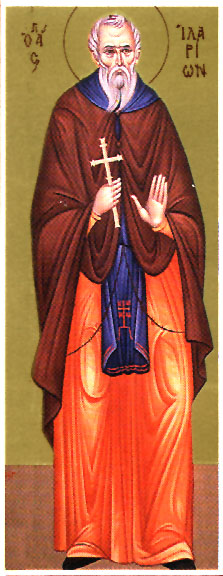|
|||
|---|---|---|---|
| This weekly bulletin insert complements the curriculum published by the Department of Christian Education of the Orthodox Church in America. This and many other Christian Education resources are available at http://dce.oca.org. | |||

Mark 1: 35-44 shows that while He was doing great miracles on earth, Jesus Christ still remained obedient to His Father. The passage begins in the very early morning. During the previous evening, Jesus has healed a great number of people and cast out demons, forbidding them even to speak. Now, well before the sun is up, He goes out alone to pray. Jesus never depends on His own power to heal and subdue demons. He constantly prays, submits Himself to His Father's will, and asks His Father to strengthen Him. Another passage, in Hebrews, encourages us to pray often, and to help each other be faithful and obedient to God, as Jesus is to His Father: "But exhort one another every day, as long as it is called 'today,' that none of you may be hardened by the deceitfulness of sin. For we share in Christ, if only we hold our first confidence firm to the end..." (3: 13-14). We need to pray constantly and renew our faith and our commitment to it. Jesus, in the passage from Mark, is given little time for His private prayers. Very soon, Simon Peter and the others "pursue" Him, and find Him. Again He is obedient, leaving His remote place to go among the people and preach to them, as He came to do. We soon see a reason why Jesus needs to renew His strength in prayer. It is because even those who receive great blessings from Him do not always listen to Him. A leper begs Him for healing, and Jesus grants it. But when Jesus "sternly charges" him not to say anything to anyone except the priests, the man promptly goes out to "spread the news." As a result of this disobedience, Jesus can "no longer enter a town." Yet His own obedience to His Father never wavers; He has come to preach and to save, and He will continue to do so. The Church remembers Saint Hilarion the New, who gives us an example of good disobedience. He lived peacefully in the early 9th century as leader of the Dalmatus monastery until the imperial government was taken over by iconoclasts, those who fiercely opposed the veneration of icons, partly because they misinterpreted the Old Testament's prohibition of graven images. Hilarion revered icons, and fearlessly accused the emperor of heresy. He was quickly imprisoned.
Hilarion's monks successfully begged for his release, promising to adhere to the law against honoring icons. But once back in their monastery, they resumed veneration of the holy images. The emperor soon discovered Hilarion's disobedience, having assigned men to watch him closely. Once again Hilarion was imprisoned, and tortured. Freed by the next emperor, Hilarion lived quietly at the monastery until his death in 845. His life shows that there is such a thing as good disobedience, because sometimes it is actually obedience to God's will, like the obedience of His Son—the Son who came in the flesh and thus allowed us to depict Him in icons. |
|||
